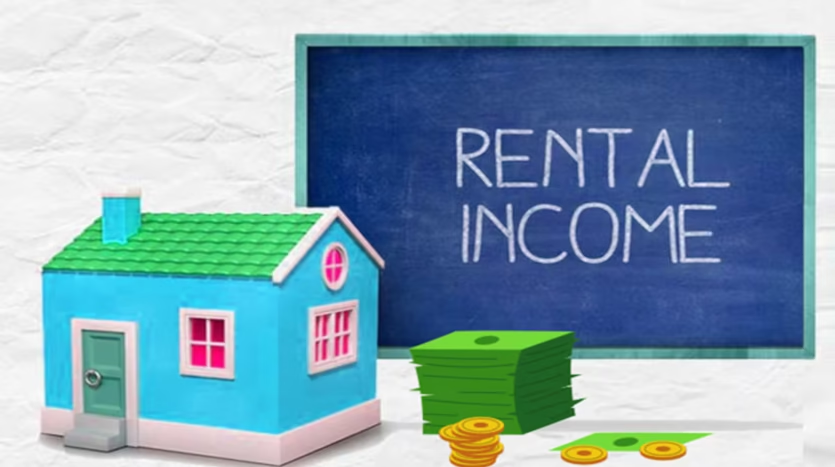The Beginner’s Guide to Passive Income Through Rental Properties
Are you tired of trading your time directly for money? Do you dream of a steady income stream that requires minimal ongoing effort? If so, passive income is likely on your radar, and real estate rentals stand out as one of the most reliable and time-tested avenues.
But for many, the idea of becoming a landlord can feel overwhelming. Where do you even begin? This beginner’s guide will break down the essentials of generating passive income through rental properties, giving you the confidence to take your first steps.
What is Passive Income (and Why Rentals Are Great for It)?
Passive income is money earned regularly with little or no ongoing effort once the initial work is done. Think of it as your money working for you, rather than you constantly working for money.
Rental properties are a fantastic fit for passive income for several key reasons:
- Consistent Cash Flow: Tenants pay rent monthly, providing a predictable income stream.
- Appreciation: Historically, real estate tends to increase in value over time, adding to your overall wealth.
- Tax Advantages: There are numerous deductions and depreciation benefits available to real estate investors.
- Leverage: You can use borrowed money (mortgages) to acquire assets that generate income, amplifying your returns.
- Inflation Hedge: As inflation rises, so too can rental income and property values, protecting your purchasing power.
Getting Started: The Essential Steps
Ready to dive in? Here’s a roadmap for beginners:
1. Education is Key
Before you even think about looking at properties, immerse yourself in knowledge.
- Read Books and Blogs: Learn about real estate investing strategies, market analysis, and landlord-tenant laws.
- Listen to Podcasts: Many successful investors share their insights and experiences.
- Attend Webinars/Seminars: Often, these offer valuable introductions to the local real estate market.
- Understand Your Local Market: Research average rents, property values, vacancy rates, and job growth in areas you’re considering.
2. Financial Preparation
This is perhaps the most crucial step.
- Save for a Down Payment: Lenders typically require a significant down payment (often 20% or more for investment properties).
- Build an Emergency Fund: Unexpected repairs or vacancies can occur. Have at least 3-6 months of expenses saved for the property.
- Improve Your Credit Score: A good credit score will qualify you for better interest rates, saving you a substantial amount over the life of the loan.
- Get Pre-Approved for a Loan: This shows sellers you’re a serious buyer and gives you a clear budget.
3. Define Your Investment Strategy
Not all rental properties are created equal.
- Long-Term Rentals (Traditional): Single-family homes, duplexes, or small apartment buildings where tenants sign leases for 6-12 months. This is often the most straightforward for beginners.
- Short-Term Rentals (e.g., Airbnb): Higher income potential but also higher turnover, more management, and potentially more regulations.
- Multi-Family vs. Single-Family: Multi-family properties (duplexes, triplexes) can offer multiple income streams, but may also come with more complex management.
4. Find the Right Property
This is where your market research pays off.
- Location, Location, Location: Look for areas with strong job markets, good schools (if targeting families), low crime rates, and desirable amenities.
- Cash Flow Analysis: This is vital! Calculate potential rental income minus all expenses (mortgage, taxes, insurance, repairs, vacancy, property management fees). You want a positive cash flow.
- Property Condition: Decide if you’re willing to take on a fixer-upper for a lower purchase price or prefer a move-in ready property.
5. Assemble Your Team
You don’t have to do it all yourself.
- Real Estate Agent: Find one who specializes in investment properties and understands the local rental market.
- Lender: A good mortgage broker can help you find the best loan products.
- Property Manager (Optional, but Recommended for Passive Income): This is the key to truly passive income. A good property manager handles tenant screening, rent collection, maintenance, and emergencies, freeing up your time.
- Contractors/Handymen: For repairs and maintenance.
- Real Estate Attorney: To help with contracts and legal aspects.
6. Tenant Acquisition and Management
If you opt to self-manage, this is a significant part of the process.
- Screen Tenants Thoroughly: This is crucial! Run credit checks, background checks, employment verification, and check references. A bad tenant can quickly erode your profits.
- Draft a Solid Lease Agreement: This protects both you and your tenants.
- Be Responsive to Maintenance Issues: Happy tenants are more likely to stay and take care of your property.
- Understand Landlord-Tenant Laws: These vary by location and are essential to follow.
The “Passive” in Passive Income
While the initial setup of a rental property requires significant effort, the “passive” aspect truly kicks in when you:
- Hire a Good Property Manager: This is the ultimate passive income hack for rentals. They handle the day-to-day, allowing you to focus on finding your next investment or simply enjoying your free time.
- Automate Where Possible: Set up automatic rent payments and expense tracking.
Risks to Be Aware Of
No investment is without risk.
- Vacancy: Periods without tenants mean no income.
- Unexpected Repairs: Major systems (HVAC, roof) can be expensive to replace.
- Problem Tenants: Evictions can be costly and time-consuming.
- Market Downturns: Property values can decrease, though typically less dramatically for income-producing assets.
- Changes in Regulations: Landlord-tenant laws can change, impacting your operations.
Is Rental Income for You?
Passive income through rentals offers an incredible path to financial freedom and wealth building. While it requires an initial investment of time and capital, the long-term rewards of consistent cash flow, appreciation, and tax benefits are substantial.
Start with education, get your finances in order, and consider building a knowledgeable team. With a strategic approach and a bit of patience, you could soon be enjoying the truly passive benefits of your own rental property portfolio.
What are your thoughts on generating passive income through rentals? Share your questions and experiences in the comments below!








